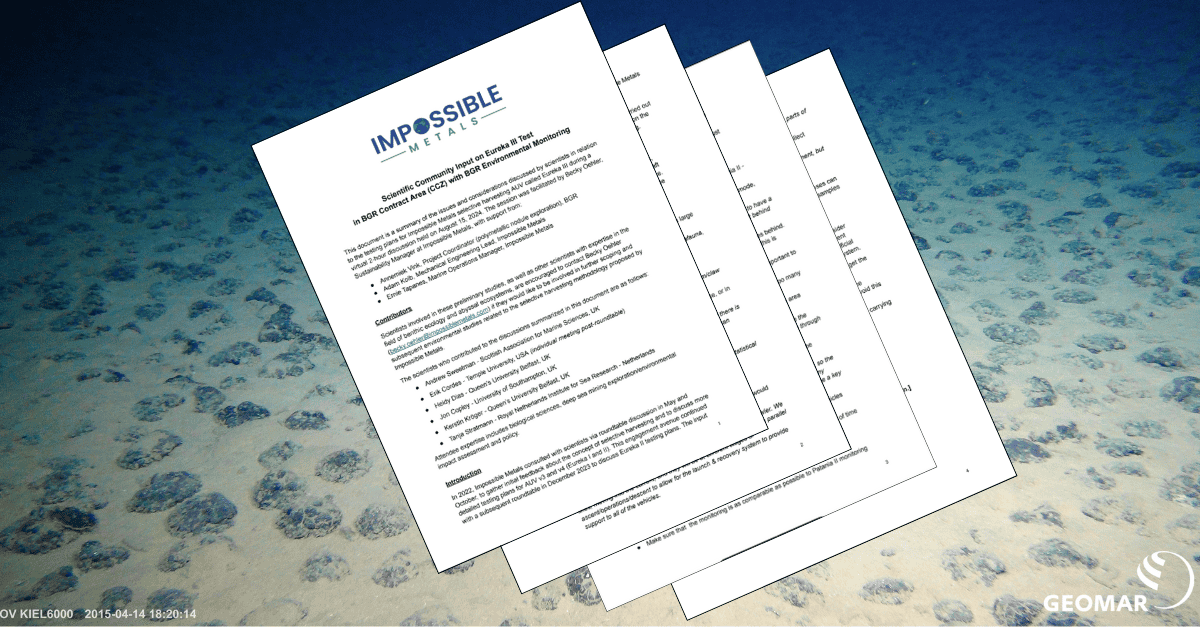On August 15, 2024, Impossible Metals met with deep-ocean scientists to discuss plans for testing Eureka III, our first production-scale autonomous underwater robot (AUV), in the German Federal Institute for Geosciences and Natural Resources (BGR) contract area of the Clarion-Clipperton Zone (CCZ), planned for Q1 2026. To carry out this test, an Environmental Impact Statement (EIS) must be submitted for approval to the International Seabed Authority (ISA) at least one year before the test. The German government reviews and provides comments on the draft EIS before it is submitted.
The EIS includes testing and monitoring plans—in other words—what will be tested, and how environmental monitoring will be carried out. In this case, Impossible Metals will collect polymetallic nodules using its Eureka III selective harvesting AUV, while BGR carries out environmental monitoring of the test from a separate vessel.
The draft testing and monitoring plans were reviewed and discussed at the recent scientific roundtable. Scientists provided valuable insight and advice on draft testing and monitoring plans. In particular, Impossible Metals was considering testing a variety of “modes”, during which the AUV would pick up different percentages/patterns of nodules. During the roundtable, all scientists agreed that Impossible Metals should focus on gathering robust data for fewer modes rather than trying many modes since there would be less data for each. This advice transformed the testing plan and provided valuable perspective for our team.
Impossible Metals strongly values stakeholder engagement, and we sincerely thank all attendees for sharing their time and expertise. We look forward to further discussions with a wider variety of stakeholders during planned consultation after submitting the EIS to the ISA. However, you don’t need to wait for a formal consultation event to talk with our team; we are always happy to answer questions and receive feedback.
You can see a summary of the roundtable discussion here.
You can see summaries of previous roundtable discussions here.
If you are a deep-ocean scientist and would like to participate in upcoming discussions, or if you have any questions or would like to provide input, please contact me at [email protected]
